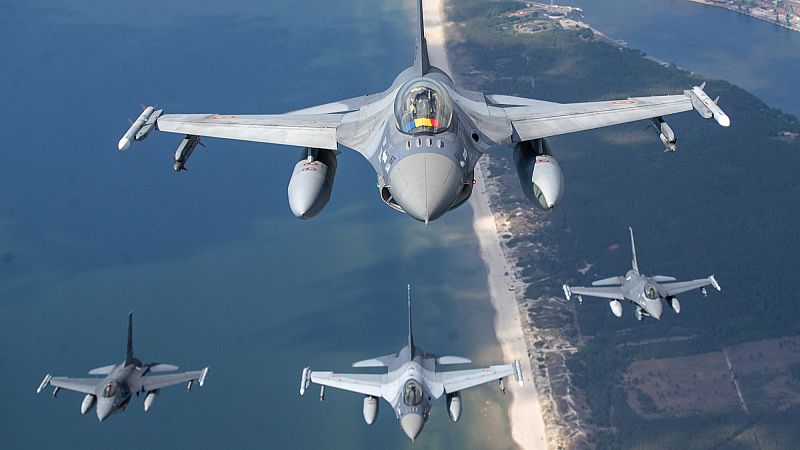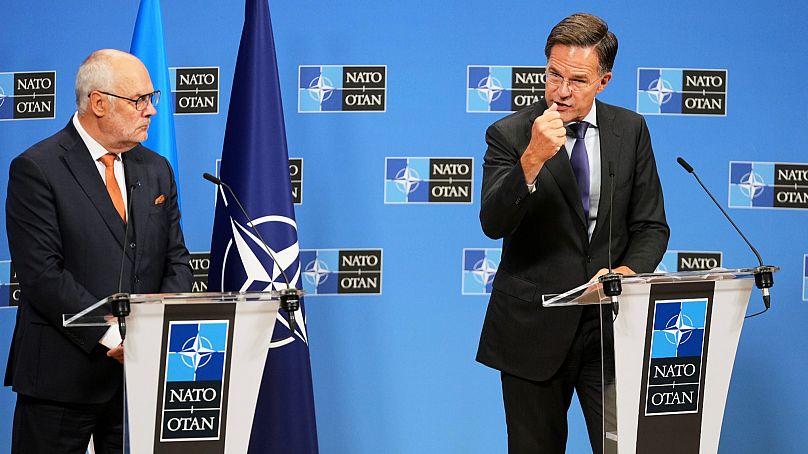Estonia 'not worried' joining Ukraine's reassurance force will weaken eastern flank, says president

Estonia is "not much worried" that the reassurance force allies could send to Ukraine as a security guarantee will weaken NATO's eastern flank but is discussing the issue with the military alliance, the country's president said on Wednesday.
The small Baltic state, which is among the 30 mostly European countries that make up the so-called 'Coalition of the Willing', has indicated it is ready to send troops to non-contact areas in Ukraine as part of an international reassurance force following any eventual ceasefire with Russia.
Lithuania and Latvia have also said they would be willing to join, although the latter has stressed it would depend on the level of Washington's contribution.
But Poland, another so-called frontline country due to its shared border with the Russian enclave of Kaliningrad and Belarus, a close ally of Moscow, has said it would not take part, arguing its troops are needed at home to protect the borders.
Immediate proximity to Russia is however "not the issue here", Estonian President Alar Karis told reporters on Wednesday following a meeting with NATO Secretary General Mark Rutte in Brussels. "We know that modern weapons can fly very fast in other parts of Europe."
"I want to make sure that US troops stay here in Europe, not only next to the border, but also in Germany, in Poland, and in other places. And we discuss this with the Secretary General as well to make sure to convince also Americans and give us also time to build up our own capabilities."
"So, there is a concern, but we are not much worried, because we are all working on the issue," he also said, adding that the topic will also be raised during his meeting with the Supreme Allied Commander Europe (SACEUR) next week.
Rutte also sought to downplay concerns, noting that although NATO will not directly play a role in security guarantees for Ukraine, it is "discreetly" taking part in discussions "to prevent spreading our resources too thinly".
"That means that we always have to do (sic) what the impact will be on the NATO plans, the foreign land forces, etc," he said, speaking alongside Karis.
Some 80,000 US troops are currently stationed across Europe but European NATO allies are bracing for a reduction in American boots due to Washington's foreign policy pivot towards the Indo-Pacific. The US is expected to unveil its plans before the end of the year.
Europeans are also pressing Washington to outline in more details how it will take part in security guarantees for Ukraine
The Elysée said on Tuesday that countries involved in the 'Coalition of the Willing', which will meet again on Thursday, had nearly completed the technical work on the security guarantees they aim to provide Ukraine following a truce and that confirmation of US support is now needed.
US President Donald Trump has made clear that Europeans will need to shoulder most of the burden when it comes to security guarantees and that he will not send any American troops on the ground as part of the reassurance force but declared himself ready to provide a backstop to European efforts.
This could take the form of air and missile cover as well as more intelligence sharing.
EU countries are, meanwhile, also working on ramping up their defence industrial base and interoperability before the turn of the decade, when Russia could be in a position to attack another European country, notably by procuring new weapons systems together.
The three Baltic countries and Poland have, for instance, requested €1 billion from the EU's €150 billion defence loan scheme to build a so-called Baltic Defence Line along the border with Russia and Belarus.
Today


